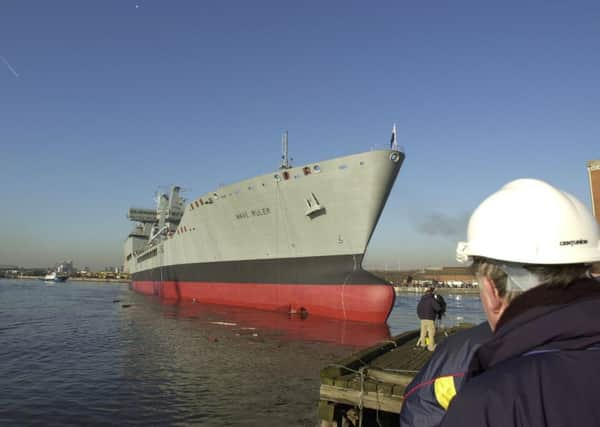Alf Baird: independence can save Scots shipbuilding


Their award-winning naval architect, Stuart Ballantyne, is from Glasgow, and now living on the Gold Coast south of Brisbane. For 30 years these guys and many expat Scots like them throughout Asia have been building ferries and other types of ships for service all over the world. Stuart has since moved production to China, where he is currently building dozens of ships. One of his boats, built in Cebu, has been operating in Orkney for the past five years and is regarded as the most efficient ferry in Scotland.
This tells us there are Scots who are expert at designing and building commercial ships – but not in Scotland. Why not? This relates largely to the policies (or rather the policy vacuum) of successive Westminster governments. Ask the expats what the problem here in Scotland was and they start by saying that, “anyone with get up and go, got up and left”.
Advertisement
Hide AdAdvertisement
Hide AdThe failure of shipbuilding in Scotland is well recorded. For a start there were no covered shipyards to keep out the adverse weather and neither yard owners nor government were willing to rectify that. Many yards were located miles from the open sea, inland on the Clyde, so ship size was limited.
The UK government was not keen on providing loan guarantees for ships, which meant there was no effective state support for the industry.
Westminster governments have never delivered an effective solution and never will. The reason? Shipbuilding is not of strategic importance to Westminster. Westminster drip feeds the odd defence contract, but these overpriced deals usually involve much if not most of the money being intercepted by yard owners and other suppliers via high margins, with the taxpayer none the wiser.
Defence shipbuilding is a profitable business. But building defence ships is not necessarily about maintaining jobs in shipbuilding, as many unionist politicians suggest. The aircraft carriers are costing around £3bn each – an insane amount to pay for a single ship. For that kind of money it would be possible to build 200 ferries, and that would generate around ten times the number of shipyard jobs.
Scotland needs almost 100 ferries to replace our ageing domestic fleet and to meet new EU clean fuel regulations. So we could and should be building ferries in Scotland. In an independent Scotland that is what we would be doing because for us shipbuilding would be strategic.
Scotland needs a strategy to diversify into commercial shipbuilding. Building ferries for Europe and other markets is considered feasible given the right approach and support, based on well-designed, low cost solutions. Expats like Stuart Ballantyne agree this can be done, and he and others are willing to help and invest.
Ballantyne offers a simple solution to resurrect Scottish shipbuilding. First build the basic ship hulls in a low-cost nation and then transport them (to Scotland in this instance) for final assembly and fitting. Most of the high value elements of a ship – the propulsion system, bridge navigation system, internal accommodation, and marine evacuation system – tend to be manufactured in Europe so can easily be sourced here. This requires a yard, or yards, to be in the right location, with covered facilities, plus a trained workforce ready to assemble ships at a rapid pace. But crucially this also requires state support in the form of help for infrastructure investment, as well as ship loan guarantees and export credit guarantees.
Large-scale commercial shipbuilding in Scotland requires an independent Scottish government to help deliver the necessary conditions to enable business to produce and sell ships profitably. The potential and skills exist.
Advertisement
Hide AdAdvertisement
Hide AdNothing can be taken for granted. But the only real certainty is that Westminster is a proven and long-standing failure as far as Scotland’s commercial shipbuilding industry is concerned. The reintroduction of commercial shipbuilding in Scotland will only be achieved through Independence.
• Alf Baird is professor of maritime business at Edinburgh Napier University and a member of Academics for Yes